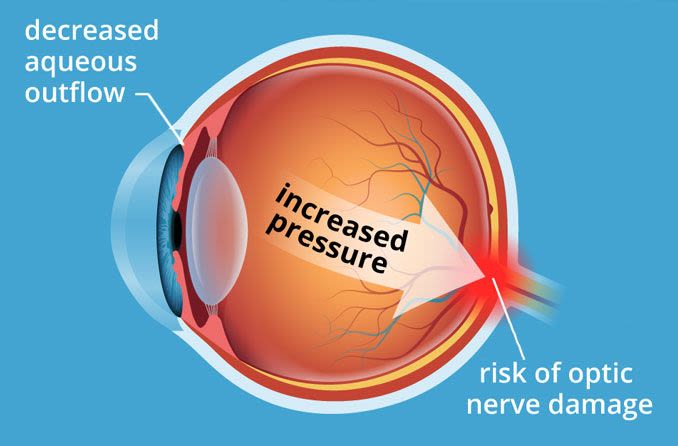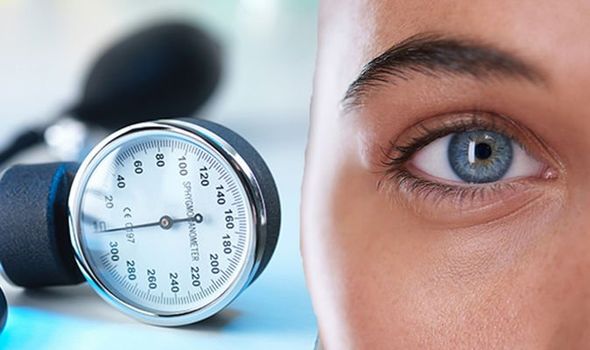High blood pressure, or hypertension, poses a significant threat to your vision. Individuals with uncontrolled hypertension are at a higher risk of developing eye conditions that can impair eyesight. By managing blood pressure, you reduce the likelihood of Hypertensive eye damage and prevent heart disease, stroke, kidney damage, and other severe health problems.
Blood pressure is the force exerted by blood against artery walls, with the top (systolic) number indicating pressure during heartbeats and the bottom (diastolic) number representing pressure between beats. Ideal blood pressure is 120/80 or lower, while 140/90 or higher is considered high. Hypertension gradually damages artery walls and can harm the heart, kidneys, and other organs.
How Hypertension Affects Eye Health
High blood pressure can cause harm to blood vessels throughout the body, including those in the eyes. Increased blood pressure leads to damage in the vessel lining and plaque buildup, a fatty substance that narrows the vessels, further elevating the blood pressure.

The health of your eyes relies on blood circulation, which provides essential oxygen and nutrients. If hypertension damages these vessels or blocks them with plaque, it can lead to vision complications such as:
- Hypertensive Retinopathy: Retinal cells, responsible for converting light into electrical signals for the brain to process as images, can be adversely affected by hypertensive retinopathy. This condition, caused by high blood pressure, leads to the thickening and narrowing of retinal blood vessels, hindering blood flow. It can also cause swelling of the retina and optic nerve and white spots on the retina, potentially leading to permanent vision loss. Signs of hypertensive retinopathy include cloudy, blurred, or lost vision and headaches.
- Nonarteritic Ischemic Optic Neuropathy (NA-AION): High blood pressure can impair the blood flow to the optic nerve, a crucial pathway connecting the eye to the brain. This reduced blood flow can damage the nerve, hindering the transmission of electrical signals to the brain. NA-AION, or nonarteritic anterior ischemic optic neuropathy, often results in painless vision loss in one or both eyes, which may be temporary or permanent.
- Central Serous Choroidopathy: High blood pressure can lead to fluid leaking from the choroid, a layer beneath the retina, affecting vision. Central serous choroidopathy symptoms include blurry central vision, distorted straight lines, faded colors, and a dark spot in the central vision. While eyesight may improve over a few months, treatments like oral medication, laser, or photodynamic therapy might be needed to address persistent leaks.
- Glaucoma: Glaucoma, a condition where increased eye pressure damages the optic nerve, can lead to gradual or sudden vision loss. While high blood pressure typically doesn’t drastically raise eye pressure, it can contribute to the development of glaucoma or worsen existing conditions. Interestingly, low blood pressure is also considered a risk factor for glaucoma.
Preventing Hypertension-Related Eye Conditions

Managing blood pressure is key to preventing eye conditions that could lead to vision loss. Lifestyle modifications like weight loss, stress reduction, dietary improvements, regular exercise, and quitting smoking are recommended for controlling high blood pressure, alongside possible medication. Annual eye exams are crucial for individuals with hypertension, as an ophthalmologist can detect early signs of serious vision issues related to high blood pressure, enabling prompt diagnosis and treatment to prevent permanent eyesight changes.
Factors That Cause Hypertensive Eye Damage
Severe eye damage is more likely with prolonged high blood pressure. Risks increase with coexisting conditions like diabetes, high cholesterol, or smoking habits. Occasionally, a sudden spike in blood pressure can lead to acute and serious eye changes. Contributing factors to hypertension include obesity, particularly around the abdomen, excessive salt intake, stress, genetic predisposition, and sometimes, an unidentified cause known as essential hypertension.
Since high blood pressure typically lacks obvious symptoms, regular monitoring is crucial for the detection and prevention of complications like heart disease, kidney issues, and vision loss. Management strategies include lifestyle changes like a healthy diet, regular exercise, smoking cessation, limited salt intake, stress reduction techniques, and possibly medication.
Symptoms of Eye Damage and Vision Loss Due to High Blood Pressure
In the late stages of hypertensive retinopathy, symptoms may become apparent. These can include double or dim vision, vision loss, and headaches. Sudden symptoms, indicative of extremely high blood pressure, require immediate medical attention.
Diagnostic Methods and Retinopathy Grading
A healthcare provider can diagnose hypertensive retinopathy using an ophthalmoscope, which reveals narrowing blood vessels and fluid leakage. The extent of retinal damage is assessed on a scale from 1 to 4:
Grade 1: Typically, asymptomatic.
Grades 2 to 3: Characterized by changes and leaking in blood vessels, with retinal swelling.
Grade 4: Involves swelling of the optic nerve and the retina’s central area (macula), leading to vision deterioration.
Additional specialized tests may be required to examine the retinal blood vessels more closely.
Risk of Stroke and Vision Loss from High Blood Pressure
High blood pressure not only affects the eyes directly but also increases the risk of stroke, which can damage the optic nerve or the brain areas responsible for image processing, leading to vision impairment.
Treatment of Eye Damage Caused by Hypertension
Controlling high blood pressure (including ways to reduce blood pressure) is the primary approach to treating hypertensive eye damage. No other specific treatments are typically used for the eye condition itself.
Prognosis for Hypertensive Retinopathy Patients
Individuals with grade 4 hypertensive retinopathy often face complications related to heart and kidney health due to high blood pressure and are at an increased risk of stroke. While controlling blood pressure can lead to healing of the retina in many cases, some individuals with severe retinopathy may experience permanent damage to the optic nerve or macula.
When to Seek Medical Attention
It is crucial to seek immediate medical help if changes in vision or headaches accompany high blood pressure, as these symptoms could indicate serious complications. hypertensive eye damage can seriously harm your eyesight and the delicate blood vessels in your eyes, leading to conditions like hypertensive retinopathy, choroidopathy, and optic neuropathy. If left uncontrolled, it can also increase the risk of stroke, which may further impair vision. The key to protecting your eyesight is managing your blood pressure effectively.

